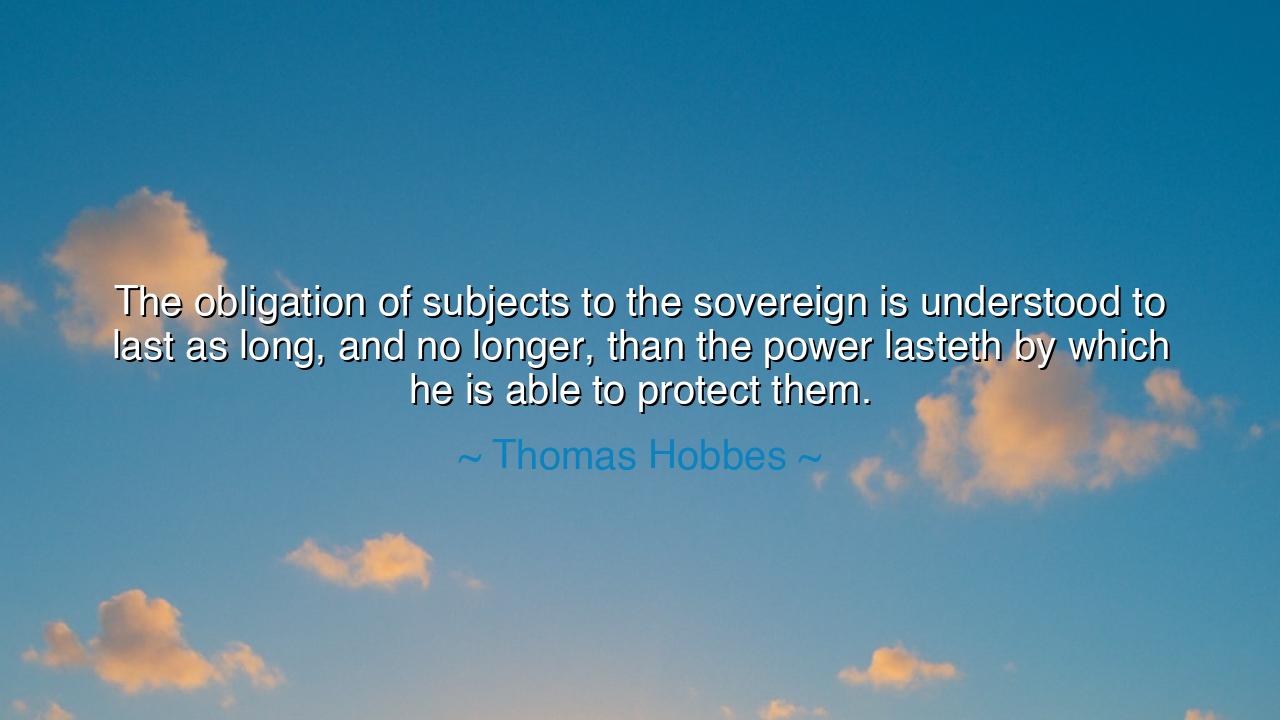
The obligation of subjects to the sovereign is understood to
The obligation of subjects to the sovereign is understood to last as long, and no longer, than the power lasteth by which he is able to protect them.






The words of Thomas Hobbes strike with the authority of a philosopher who looked into the heart of power and fear: “The obligation of subjects to the sovereign is understood to last as long, and no longer, than the power lasteth by which he is able to protect them.” In this declaration, Hobbes reveals the foundation of loyalty: not birth, not ritual, not blind devotion, but the sovereign’s strength to guard his people from harm. Without protection, the covenant dissolves, and the subject owes no more obedience.
For Hobbes, writing in his great work Leviathan, the sovereign is like a mighty shield raised against the chaos of the world. Men enter into society because they fear the war of all against all, and they place themselves under a ruler so that order may triumph over anarchy. But this allegiance is not eternal. It endures only while the ruler wields the power to keep the peace, to secure life and property. When the shield shatters, when safety fails, the bond between ruler and subject breaks of its own accord.
History bears out this grim truth. When the Roman Empire grew weak, no longer able to defend its provinces from the barbarian invasions, the allegiance of the people faltered. Towns and cities turned to local warlords for protection, and the empire’s authority crumbled. The subjects had no duty to a sovereign who could not protect them; they sought safety wherever it might be found. Thus, Hobbes’s philosophy is no idle speculation, but a mirror held to the cycles of history.
His words also carry a warning to rulers. Power is not for self-indulgence but for service. A sovereign who hoards riches, wages foolish wars, or neglects the defense of his people undermines the very ground of his authority. For the people submit not out of love but out of necessity, and when necessity is betrayed, rebellion or abandonment follows. Hobbes makes clear: authority is as fragile as the protection it provides.
Therefore, let this wisdom endure: the bond between ruler and ruled rests not on ceremony but on strength and duty. The sovereign must be the guardian, the protector, the strong wall against disorder. And the subject, in turn, owes loyalty only so long as that wall stands firm. Hobbes, with the clarity of iron, teaches future generations that power without protection is tyranny, and loyalty without protection is folly.






AAdministratorAdministrator
Welcome, honored guests. Please leave a comment, we will respond soon